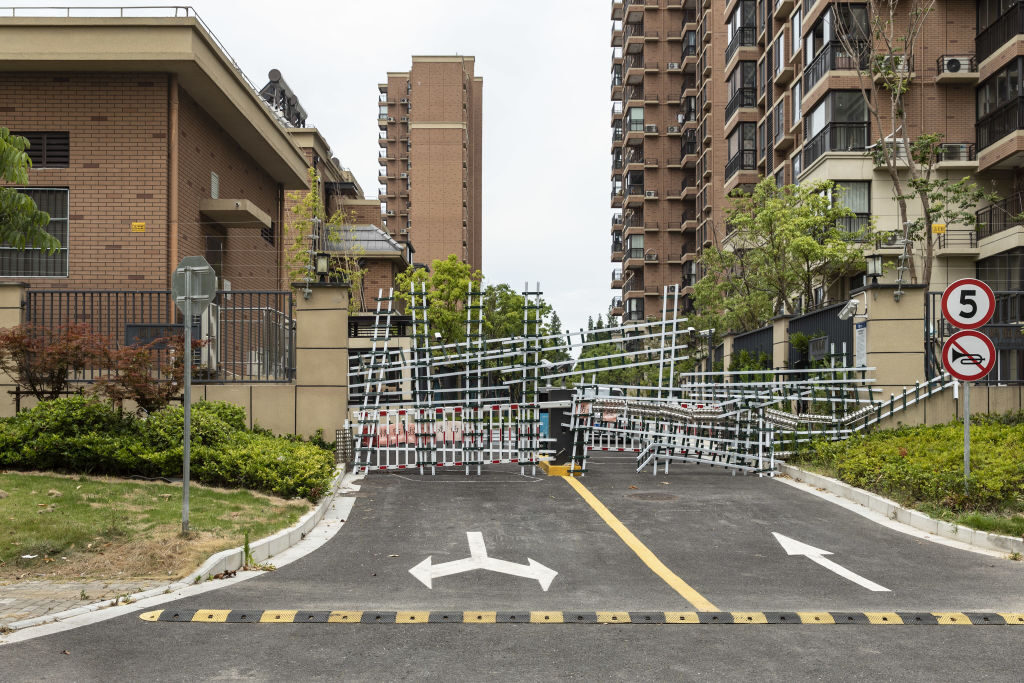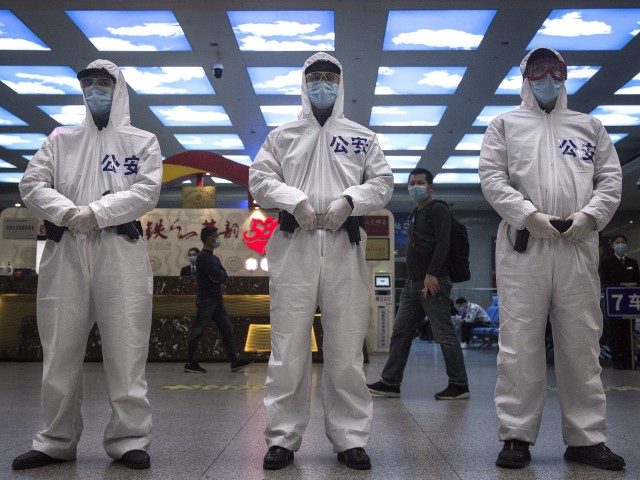Oil prices jumped on Monday, ending a modest price slump caused not by President Joe Biden’s unsuccessful effort to beg Saudi Arabia to increase production, but rather by China’s economy-crushing coronavirus lockdowns and fears of a recession.
Reuters on Monday noted the past week was a roller-coaster ride for oil, as “demand fears brought on by a possible recession and China lockdowns” created the biggest price declines of the summer season – but then a weak dollar, Russian threats to cut off Europe’s gas supply, and the generally tight supply of oil pushed prices back up again.
“Mounting demand concerns on another spike in [Chinese coronavirus] cases in China amid a broader slowdown and resilient Russian output have weighed on oil prices recently,” London-based multinational bank Barclays explained.
China ordered mass coronavirus testing in the massive hub cities of Tianjin and Shanghai on Monday, only a few weeks after Shanghai emerged from a grueling two-month lockdown that inflicted tremendous economic damage on the city and its international trading partners.
Shanghai has experienced a few “snap lockdowns” of individual districts since then, leaving residents nervous that orders for mass testing could be a prelude to another devastating citywide quarantine.
Tianjin, a major port city with a population of 14 million, also suffered lockdowns during the spring. Tianjin is currently in a partial lockdown, restricting travel and shutting down indoor venues to control an outbreak of the Omicron variant of Chinese coronavirus.
By subscribing, you agree to our terms of use & privacy policy. You will receive email marketing messages from Breitbart News Network to the email you provide. You may unsubscribe at any time.
China’s lockdowns took oil for a similar roller-coaster ride in April and May, pulling prices down below $100 a barrel for a few weeks due to reduced demand and recession fears. Prices bounced back to $120 and more in May when the lockdowns were lifted. Brent crude was trading at just under $104 a barrel on Monday, held down largely by anticipation of a worldwide economic slowdown, and by poor weather reducing demand from some oil-hungry countries like India.
While Biden’s trip to Saudi Arabia failed to secure any promise of significant production increases, some analysts are hopeful the Saudis and their OPEC partners could still change their minds, or that supplies from some distressed oil-producing nations could increase, notably Libya.

Barricades from recent Covid-related lockdowns block an entrance leading to Country Garden Holdings Co.’s Fengming Haishang residential development in Shanghai, China, on Tuesday, July 12, 2022. (Qilai Shen/Bloomberg via Getty)
Saudi Crown Prince Mohammed bin Salman (MBS) said on Saturday that his country “will not have any more capability to increase production” after a very modest potential increase that would take several years to fully implement. MBS’ comments directly contradicted Biden’s unsubstantiated claim to reporters on Friday that he persuaded the Saudis to increase production during a closed-door meeting.
Iraqi energy minister Ihsan Abdul Jabbar said on Monday that he expects oil will continue trading at over $100 per barrel for the remainder of this year. Iraq, which is OPEC’s second-largest producer after Saudi Arabia, hopes to bring a major new refinery online next year, significantly increasing its oil exports.

COMMENTS
Please let us know if you're having issues with commenting.